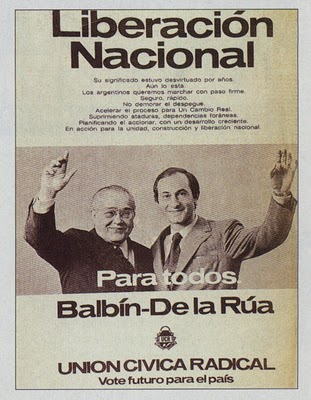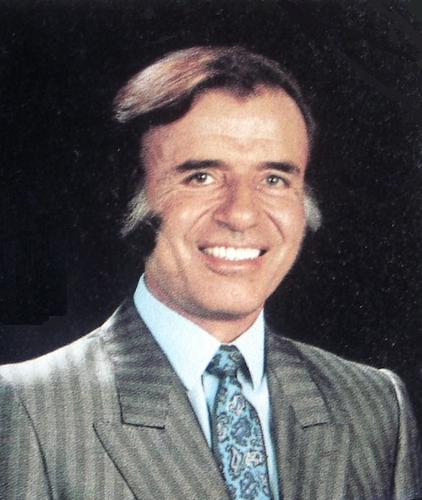|
Menem
Carlos Saúl Menem (2 July 1930 – 14 February 2021) was an Argentine lawyer and politician who served as the President of Argentina from 1989 to 1999. Ideologically, he identified as a Peronist and supported economically liberal policies. He led Argentina as president during the 1990s and implemented a free market liberalization. He served as President of the Justicialist Party for thirteen years (from 1990 to 2001 and again from 2001 to 2003), and his political approach became known as Federal Peronism. Born in Anillaco to a Syrian family, Menem was raised as a Muslim,"Carlos Menem" ''Encyclopædia Britannica'' but later converted to to pursue a political career. Menem be ... [...More Info...] [...Related Items...] OR: [Wikipedia] [Google] [Baidu] |
Eduardo Duhalde
Eduardo Alberto Duhalde (; born 5 October 1941) is an Argentine Peronist politician who served as the interim President of Argentina from January 2002 to May 2003. He also served as Vice President and Governor of Buenos Aires in the 1990s. Born in Lomas de Zamora, he was elected for the local legislature and appointed '' intendente'' (mayor) in 1973. He was deposed during the 1976 Argentine coup d'état, and elected again when democracy was restored in 1983. He was elected vice-president of Argentina in 1989, under President Carlos Menem. Duhalde resigned as vice president and was elected Governor of Buenos Aires Province in 1991, and re-elected in 1995. He ran for president in 1999, being defeated by Fernando de la Rúa. De la Rúa resigned during the December 2001 riots, and Congress appointed the governor of San Luis Province Adolfo Rodríguez Saá as president. When Rodríguez Saá also resigned, Congress appointed Duhalde. During Duhalde's term in office, a huge curre ... [...More Info...] [...Related Items...] OR: [Wikipedia] [Google] [Baidu] |
Fernando De La Rúa
Fernando de la Rúa (15 September 19379 July 2019) was an Argentine politician and a member of the Radical Civic Union (UCR) political party who served as President of Argentina from 10 December 1999 to 21 December 2001. De la Rúa was born in Córdoba; he entered politics after graduating with a degree in law. He was elected senator in 1973 and unsuccessfully ran for the office of Vice President as Ricardo Balbín's running mate the same year. He was re-elected senator in 1983 and 1993, and as deputy in 1991. He unsuccessfully opposed the pact of Olivos between President Carlos Menem and party leader Raúl Alfonsín, which enabled the 1994 amendment of the Argentine Constitution and the re-election of Menem in 1995. De la Rúa was the first chief of government of Buenos Aires to be elected by popular vote, a change introduced by the amendment of the Constitution. He expanded the Buenos Aires Underground, adding new stations to Line D, starting the expansion of Line B, and ... [...More Info...] [...Related Items...] OR: [Wikipedia] [Google] [Baidu] |
Justicialist Party
The Justicialist Party ( es, Partido Justicialista, ; abbr. PJ) is a major political party in Argentina, and the largest branch within Peronism. Current president Alberto Fernández belongs to the Justicialist Party (and has, since 2021, served as its chairman), as well as former presidents Juan Perón, Héctor Cámpora, Raúl Alberto Lastiri, Isabel Perón, Carlos Menem, Ramón Puerta, Adolfo Rodríguez Saá, Eduardo Camaño, Eduardo Duhalde, Néstor Kirchner, and Cristina Fernández de Kirchner. Justicialists have been the largest party in Congress almost consistently since 1987. Founded by Juan Perón, it was previously called the Peronist Party after its founder. It is overall the largest party in Congress; however, this does not reflect the divisions within the party over the role of Kirchnerism, the left-wing populist faction of the party, which is opposed by the dissident Peronists (also known as Federal Peronism or Menemism), the conservative faction of the ... [...More Info...] [...Related Items...] OR: [Wikipedia] [Google] [Baidu] |
Zulema Yoma
Zulema Fátima Yoma (born 18 December 1942) was the First Lady of Argentina from 1989 until 1991, when she divorced President Carlos Menem. Biography A native of Nonogasta in La Rioja Province, Yoma was married for twenty-five years (1966–91) to Carlos Saúl Menem, who served as President of Argentina from July 1989 to December 1999. Her parents were Syrian Muslims, as Menem's were. They had two children, a son, Carlos Saúl Facundo Menem Yoma, who died in a helicopter crash in 1995, and a daughter, Zulema María Eva Menem, who, starting in 1991, fulfilled the role of First Lady at formal occasions for the remaining eight years of her father's presidency. Controversies Her son, Carlos Saúl Facundo Menem, died in a helicopter crash in 1995. Although it was ruled an accident, there are conspiracy theories that say he was actually murdered, of which Zulema Yoma and her daughter Zulemita are convinced. Yoma felt her son's death was politically motivated and even stated that th ... [...More Info...] [...Related Items...] OR: [Wikipedia] [Google] [Baidu] |
1989 Argentine General Election
The Argentine general election of 1989 was held on 14 May 1989. Voters chose both the President and their legislators and with a turnout of 85.3%, Carlos Menem won the presidency, and the peronist Justicialist Party won the control of both houses of Congress. This is the last presidential election the president was elected by the electoral college. Background Inheriting a difficult legacy from his military predecessors, President Raúl Alfonsín's tenure had been practically defined by the foreign debt Argentina's last dictatorship left behind. Signs of unraveling in Alfonsín's 1985 Austral Plan for economic stabilization cost his centrist Radical Civic Union (UCR) its majorities in the Chamber of Deputies (lower house of Congress) and among the nation's 22 governorships in the September 1987 mid-term elections. Facing a restive armed forces opposed to trials against past human rights abuses and mounting inflation, the president brought elections forward five months, now ... [...More Info...] [...Related Items...] OR: [Wikipedia] [Google] [Baidu] |
Raúl Alfonsín
Raúl Ricardo Alfonsín (12 March 1927 – 31 March 2009) was an Argentine lawyer and statesman who served as President of Argentina from 10 December 1983 to 8 July 1989. He was the first democratically elected president after more than seven years of military dictatorship, and is considered the "father of modern democracy in Argentina". Ideologically, he identified as a Radical and a social democrat, serving as the leader of the Radical Civic Union from 1983 to 1991, 1993 to 1995, 1999 to 2001, with his political approach being known as "Alfonsinism". Born in Chascomús, Buenos Aires Province, Alfonsín began his studies of law at the National University of La Plata and was a graduate of the University of Buenos Aires. He was affiliated with the Radical Civic Union (UCR), joining the faction of Ricardo Balbín after the party split. He was elected a deputy in the legislature of the Buenos Aires province in 1958, during the presidency of Arturo Frondizi, and a national ... [...More Info...] [...Related Items...] OR: [Wikipedia] [Google] [Baidu] |
Eduardo Menem
Eduardo Menem (born 30 April 1938) is an Argentine Justicialist Party politician. He is a former Senator and the brother of former President Carlos Menem. Born to a family of Syrian origin in Anillaco, Menem was elected Senator for La Rioja Province for four terms (1983-1989, 1989–1995, 1995–2001, 2001-2005). He served as provisional President of the Senate between 1989 and 1999, holding executive power on many occasions during trips abroad by the President, in the absence of a vice-President after the resignation of Eduardo Duhalde. He also worked as president of the Constitutional Assembly that enacted the 1994 amendment of the Argentine Constitution. After leaving the Congress, he joined the internal line of the PJ that opposes Kirchnerism. Despite not being part of the Congress, he supported the actions of Julio Cobos in 2010, which were criticized by Néstor and Cristina Kirchner. Books * "Nueve años en el Congreso de la Nación" ( en, Nine years in the National Congre ... [...More Info...] [...Related Items...] OR: [Wikipedia] [Google] [Baidu] |
Federal Peronism
Federal Peronism ( es, Peronismo Federal), also known as Dissident Peronism ( es, Peronismo Disidente) and Menemism ( es, Menemismo), are the informal names given to a conservative political alliance between Justicialist Party figures, currently identified mostly by its opposition to ruling Kirchnerism, the left-wing faction. The term "Federal Peronism," as opposed to "metropolitan Peronism" (mainly from Greater Buenos Aires), was informally used since the 1980s to identify the more traditional and conservative Peronists from the Provinces of Argentina, whose governors grew in number and influence during the administration of President Carlos Menem. "Dissident Peronism" is more properly used to refer to the Peronist opposition to the administrations and party leadership of left-leaning Néstor Kirchner and Cristina Fernández de Kirchner. The term gained currency since the 2008 Argentine government conflict with the agricultural sector, when a number of party leaders, governo ... [...More Info...] [...Related Items...] OR: [Wikipedia] [Google] [Baidu] |
Zulema María Eva Menem
Zulema María Eva Menem (Arabic :زوليما ماريا إيفا منعم) (born 25 December, 1970) is an Argentine politician who replaced her mother in the role of First Lady after the latter separated from her father, President of Argentina Carlos Menem. Menem was born in La Rioja Province. To avoid confusion with her mother Zulema Fátima Yoma, since both could be called "Zulema Menem", the media refers to her as ''Zulemita''. Biography Zulemita initially appeared in gossip magazines as the daughter of the President. She began to perform protocol work after her parents divorced. Zulemita accepted the first lady role. She received decorations from the kings of Spain and Sweden. Zulemita broke her relationship with her father after his marriage to Chilean Cecilia Bolocco. This marriage affected her inheritance Inheritance is the practice of receiving private property, titles, debts, entitlements, privileges, rights, and obligations upon the death of an individua ... [...More Info...] [...Related Items...] OR: [Wikipedia] [Google] [Baidu] |
La Rioja Province, Argentina
La Rioja () is a province of Argentina located in the west of the country. The landscape of the province consist of a series of arid to semi-arid mountain ranges and agricultural valleys in between. It is in one of these valleys that the capital of the province, the city of la La Rioja, lies. Neighboring provinces are from the north clockwise Catamarca, Córdoba, San Luis and San Juan. The dinosaur ''Riojasaurus'' is named after the province. History Petroglyphs created by early indigenous peoples at the Talampaya National Park are dated around 10,000 years BC. Succeeding cultures of indigenous peoples developed here. The Diaguita, Capayan and the Olongasta peoples inhabited the territory of present-day La Rioja Province at the time of encounter with the Spanish colonists in the 16th century. Juan Ramírez de Velazco founded ''Todos Los Santos de la Nueva Rioja'' in 1591 under the government of Tucumán of the Viceroyalty of Peru. In 1630 the Calchaquí people revolted ... [...More Info...] [...Related Items...] OR: [Wikipedia] [Google] [Baidu] |
Carlos Ruckauf
Carlos Federico Ruckauf (born July 10, 1944) is a Peronist politician in Argentina, member of the Justicialist Party. He served as Minister of Foreign Affairs from January 2002 to March 2003. He had earlier served as Vice-President of Argentina from 1995 to 1999, with Carlos Menem, and as his Interior Minister during his first administration. He was twice elected to the National Assembly following the restoration of democratic rule. In his early career, he was appointed as a labor court judge, followed by Minister of Labor in July 1974. He signed decree 261/75 on October 6, 1974, granting blanket amnesty to the Armed Forces for the "annihilation of subversives". It is now considered a step in what became the state's "Dirty War" against political dissidents under the military dictatorship that overthrew Isabel Perón. Early life and education Carlos Federico Ruckauf was born in the western Buenos Aires suburb of Ramos Mejía. His parents separated when he was seven, and he lived i ... [...More Info...] [...Related Items...] OR: [Wikipedia] [Google] [Baidu] |





